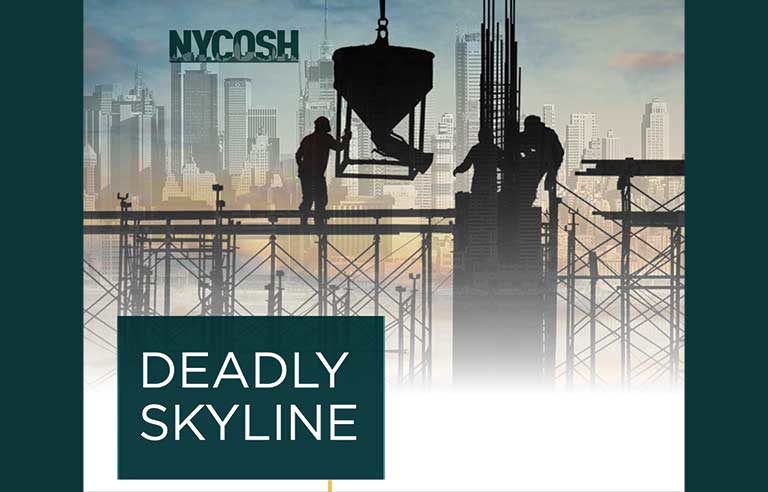Report reveals startling rise in NY construction worker deaths

New York — The number of construction workers killed in New York City soared 54% in 2021 from 2020, and jumped 49% in the state overall, according to a recent report.
The New York Committee for Occupational Safety and Health, an advocacy group, gathered data from multiple sources, including the New York City Department of Buildings and the New York State Department of Labor. It found that 61 construction workers in the state died on the job in 2021. That’s 20 more than in 2020, when fatalities decreased in part because of a slowdown in the industry during the COVID-19 pandemic.
Across the state, the construction fatality rate rose 9% in 2021, to 12.1 deaths per 100,000 workers from 11.1. In New York City, 20 construction workers died – up from 13 in 2020.
Latino construction workers, who make up 10% of the state’s workforce, accounted for 25% of the deaths – up from 18% in 2020.
The data doesn’t include deaths linked to on-the-job exposures to COVID-19 or other occupational illnesses.
The report includes 10 recommendations to address the rise in construction worker deaths, including doubling federal OSHA’s budget. NYCOSH also calls for:
- Requiring training and certification for construction workers in the state.
- Preserving the state’s scaffold safety law.
- Expanding criminal prosecutions of contractors statewide.
- Ensuring OSHA issues a permanent standard on infectious diseases for all workers, including its own.
- Using existing city powers to suspend and revoke licenses and construction permits of criminal contractors.
“New York state is a leader for many things, but construction fatalities should not be one of them,” NYCOSH Executive Director Charlene Obernauer said in a press release. “Construction workers continue to work in avoidably dangerous conditions because not enough funding is going toward inspections and enforcement, on both the city and federal level.”
Post a comment to this article
Safety+Health welcomes comments that promote respectful dialogue. Please stay on topic. Comments that contain personal attacks, profanity or abusive language – or those aggressively promoting products or services – will be removed. We reserve the right to determine which comments violate our comment policy. (Anonymous comments are welcome; merely skip the “name” field in the comment box. An email address is required but will not be included with your comment.)

